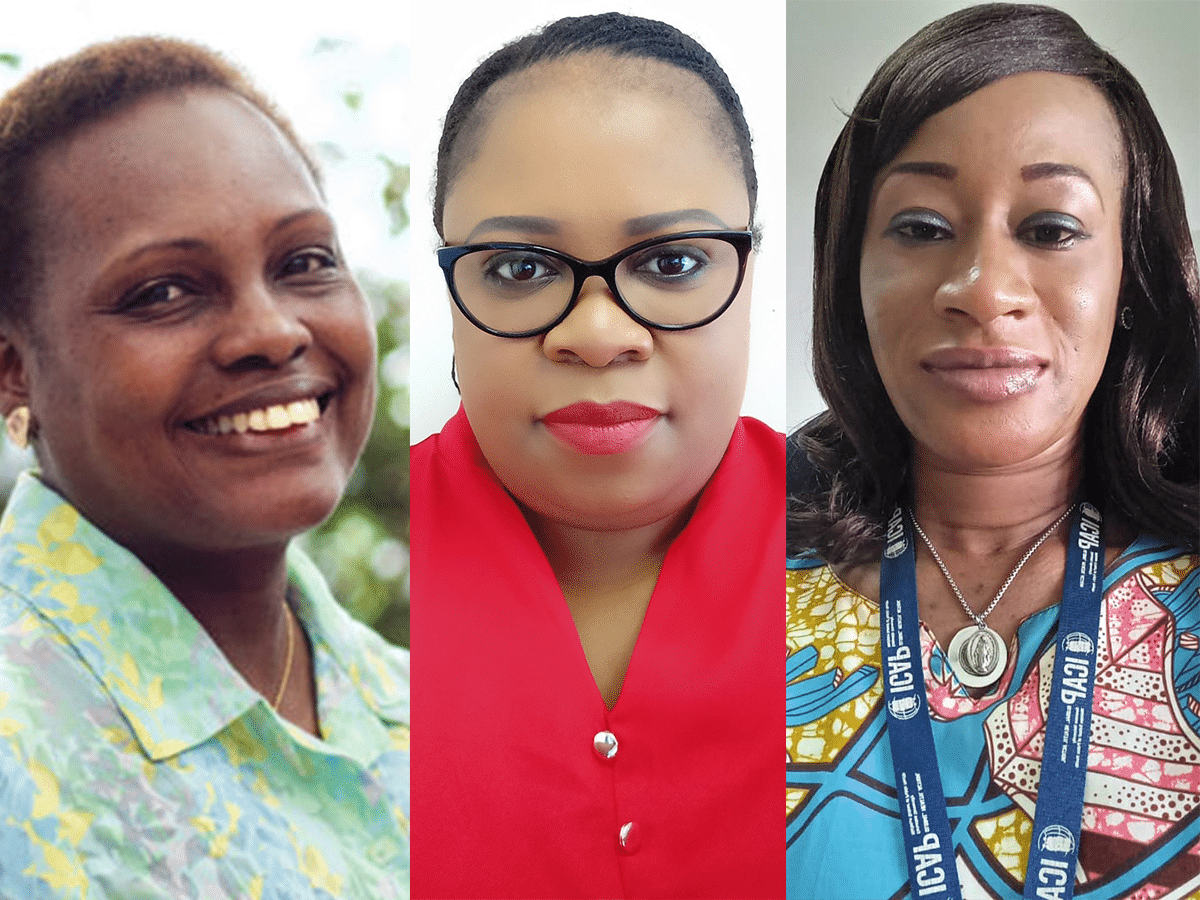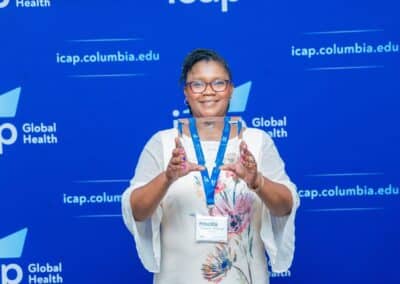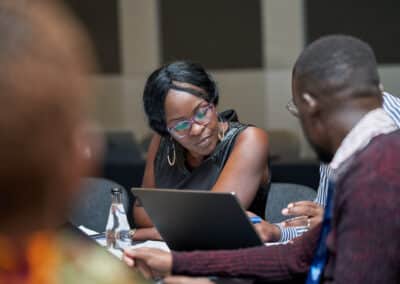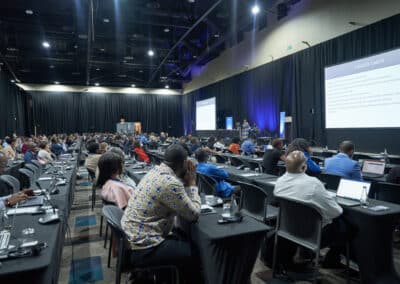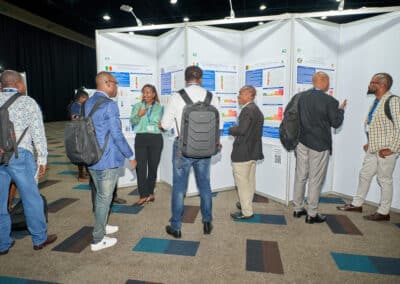From three regional hubs in sub-Saharan Africa, the CQUIN Operations team coordinates the events and activities that drive the network.
Christine Mburu is the regional operations coordinator based in Kenya. Phephile Dlamini is in Eswatini, and Léocadie Koffi manages activities from Côte d’Ivoire. Together, and under the guidance of Laura Block MSc, Senior Project Portfolio Manager and CQUIN project officer in New York, the team organizes and supports CQUIN conferences, workshops, meetings, webinars, south-to-south learning exchange visits, and community of practice meetings, among other activities.
“The operations team is really a microcosm of the CQUIN network,” said Block. “Operations is often not as visible as other elements of the project, but these women are behind the scenes proactively ensuring that all our partners and stakeholders from 21 countries can engage in the network.”
The operations team is the key interface between ICAP technical teams, administration, finance, and logistics.
From coordinating logistics for calls, webinars, and meetings, such as the recent Differentiated Service Delivery for Maternal and Child Health meeting to supporting regional technical teams during travel, and backstopping virtual activities, the operations team juggles a lot.
“The efficiency of organizing and coordinating activities behind the scenes to move groups of people from one region to another as quickly as we do is certainly a tribute to all the hard work of the operations team,” says Block.
The responsibilities of the operations team have evolved as the CQUIN network has grown. When CQUIN was launched in 2016, Dlamini, Mburu, and Koffi joined the network to support activities and help host workshops on an ad hoc basis. As the network expanded, the advantages of a coordinated operations team became clear, and the team was convened under the leadership of Block.
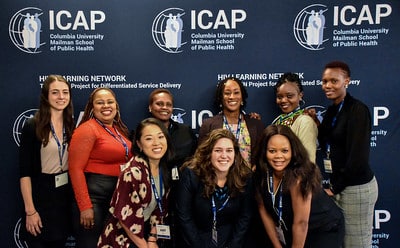 Mburu joined ICAP as an administrative assistant for the Nairobi office in 2009 and has supported workshops, stakeholder travel, and community of practice calls. She also supports the regional technical team with administrative duties. “I also support the regional staff under the PHIA (Population-based HIV Impact Assessment), and RISE project with travel logistics and support the ICAP Kenya office in Kisumu,” she notes.
Mburu joined ICAP as an administrative assistant for the Nairobi office in 2009 and has supported workshops, stakeholder travel, and community of practice calls. She also supports the regional technical team with administrative duties. “I also support the regional staff under the PHIA (Population-based HIV Impact Assessment), and RISE project with travel logistics and support the ICAP Kenya office in Kisumu,” she notes.
Dlamini, who joined ICAP Eswatini in September 2015, started working with CQUIN in 2016 when ICAP hired Peter Preko, MB.ChB, MPH, CQUIN project director. She also supports the community of practice calls, including those for the DSD Coordinator, Quality Improvement, and Non-Communicable Diseases communities of practice, which foster information exchange between the various CQUIN member countries.
Block describes Koffi as the force behind stakeholders who require coordination in French and English to ensure things are done on time and within budget. Koffi has been working with ICAP in Côte d’Ivoire since April 2009. She joined ICAP as a program assistant and moved on to a secretarial role, where she supported ICAP’s technical team with administrative tasks and finances. Koffi has supported CQUIN network activities since Côte d’Ivoire became the first West African country to join the network in 2017. As CQUIN returns to convening in-person activities, Koffi’s duties will expand to support DSD performance reviews and other technical assistance projects. She will also be coordinating stakeholder travel for south-to-south visits throughout the West and Central Africa region. “It means a lot to be part of this team,” Koffi said. “Through CQUIN, I have seen the progress that country ministries of health have made in progressing models of care for people living with HIV.”
Mburu believes CQUIN is achieving its objectives of engaging country stakeholders to promote cross-country learning. “Our relationships with country stakeholders have evolved. In Kenya, the strong engagement of Kenya’s National AIDS Control Program in the CQUIN network has supported the country to improve DSD coverage and quality of care for recipients of care,” Mburu said.
For Dlamini, the network is growing well. “I have witnessed the growth of this multi-country learning exchange from inception and the impact it has made in the countries that we work with,” she said.
For Block, there would be no CQUIN activity without operations. “If people see CQUIN’s impact and say we convene stakeholders very well, then it is because of the efficiency and organization of this group. The operations team are the chefs putting all the ingredients together.”


